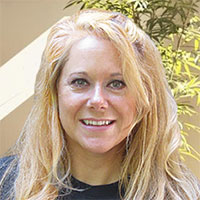Do Our Loved Ones Become Our Spirit Guides?
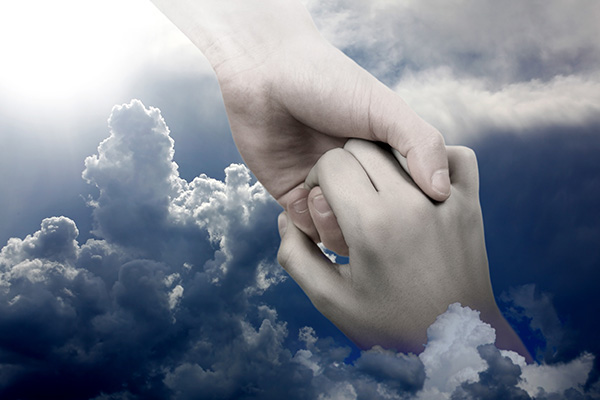 While doing mediumship readings, I often have people ask me if their loved ones who have crossed over are now their spirit guides. The answer is, no. While our loved ones, who have crossed over, do watch over us, and communicate with us through dreams and other means, they are not our spirit guides.
While doing mediumship readings, I often have people ask me if their loved ones who have crossed over are now their spirit guides. The answer is, no. While our loved ones, who have crossed over, do watch over us, and communicate with us through dreams and other means, they are not our spirit guides.
Becoming a spirit guide requires many life times of experience, schooling and training. Our loved ones can give us energy, love and light, but they are not allowed to interfere with our destiny in any way.
So, what is the difference between spirit guides and loved ones who have crossed over?
Spirit guides are with us before we choose our life. They help us decide what goals we have and what we want to emphasize and work on in the next life. They remind us of the lessons in life we struggle with every life.
Our guides also remind us of the lessons we have avoided signing up for in our past lives. Have you taken on disability? Poverty? Wealth? Abuse? Fame? What adversities have you overcome and which ones will you need to take on?
Often we feel we are being punished by these adversities when on earth, when in reality, we decide to take them on and gain the strength, compassion, empathy and wisdom they teach us.
Every soul will need to take on the mirror images of every human experience. Poverty and wealth. Sickness and health. Justice and injustice. Power and powerlessness. Freedom and restraint. These aren’t punishments.
Love Is Not Just A Battery, It’s Also A Boomerang!
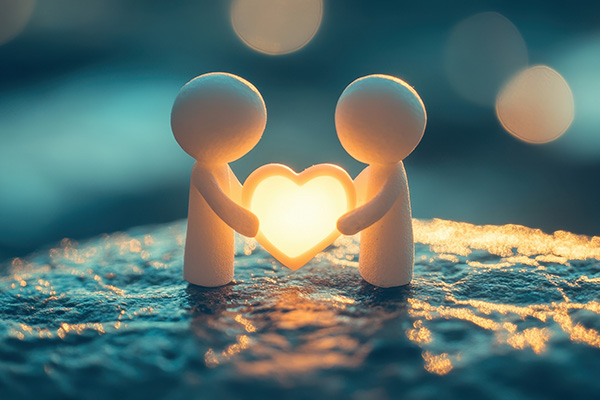 Love is like a battery. Love is also like a boomerang.
Love is like a battery. Love is also like a boomerang.
When your energy is low, you may feel depleted and think you don’t have any more love to give. The opposite is also true. Complimenting a stranger or showing love to an animal or person re-energizes your battery.
Love is infinite, not finite. The love and joy you give to others comes back to you.
In fact, I often tell my yoga students and psychic clients who are struggling with depression or sadness to compliment at least ten people each day.
It can be something as simple as saying, “I love that shirt!” or “Your writing is so neat!” The smile on that person’s face raises your vibration, healing you as well as them. Most people are struggling with some kind of challenge, and that one compliment can change their day.
Studies have shown that smiling releases hormones that make you happy, while frowning releases hormones that make you sad. Laughing and crying intensifies these hormones. So, smiling at someone or laughing can actually raise your joy level and vibration.
We live in a hate and frustration driven world lately where people are increasingly divided and constantly judging and attacking each other. I belong to several social media groups where people constantly being unkind and intolerant to others. Continue reading
Take Out The Toxic Trash With A Self-Love Meditation
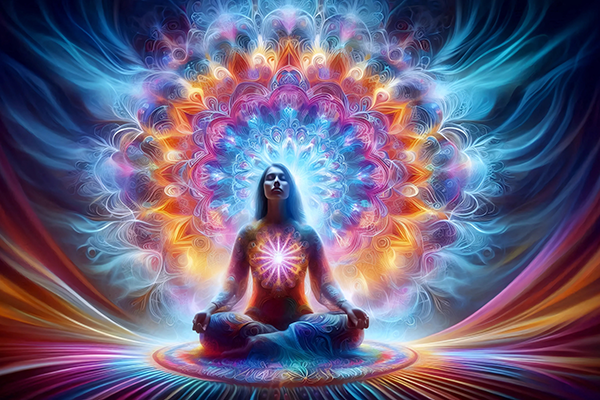 I’ve been teaching meditation for over 30 years now, and it is something that has been widely misunderstood. It has also been hijacked by people with nefarious, materialistic agendas.
I’ve been teaching meditation for over 30 years now, and it is something that has been widely misunderstood. It has also been hijacked by people with nefarious, materialistic agendas.
Meditation is not about emptying the mind or having no thoughts. Rather, it is about removing and replacing negative thoughts, repetitive patterns, abusive programming from childhood, and conditioning imposed by sadistic or wounded individuals.
Meditation is about inviting God, Spirit, Source, the Divine back into the heart, soul, and mind.
When we are children, everything begins with love. Children are eternal optimists, even when they have been traumatized.
But almost every child encounters at least one parent, relative, teacher, classmate, or authority figure who is abusive. These individuals attempt to rid themselves of their own overflowing toxicity by dumping it onto others: verbally, emotionally, or physically. Their words become programming, much like a computer virus.
Meditation is designed to replace that negative programming. Instead of hearing “you are worthless” looping in your mind, meditation allows you to consciously replace that tape with “I am loved.”
Think about the hurtful words that were spoken or screamed at you as a child. Then, during meditation, repeat the opposite.
A Beginner’s Guide To Forest Bathing
 The spiritual healing practice of forest bathing, also known as tree bathing or Shinrin-yoku, is more than just a casual walk in the woods. It’s a conscious, mindful immersion into the living energy of the natural world.
The spiritual healing practice of forest bathing, also known as tree bathing or Shinrin-yoku, is more than just a casual walk in the woods. It’s a conscious, mindful immersion into the living energy of the natural world.
In a time of constant motion and information, nature offers a different kind of wisdom. When you enter the woods with humility and presence, the trees respond. They speak in stillness, they heal without fanfare, and they remind us of the sacredness that lives in all things.
Originating in Japan in the 1980s, Shinrin-yoku was developed as a form of eco-therapy to combat stress, burnout, and disconnection from the land. But long before it became a modern wellness trend, it was an everyday way of life our ancestors took for granted.
At its essence, forest bathing invites you to slow down, breathe deeply, and reconnect with nature as a living, healing presence.
It isn’t about hiking or exercise. There is no goal to achieve. You don’t have to meditate, journal, pray, do or achieve anything at all. Simply being with the trees and plants is enough.
When we stop and listen, we realize the forest has its own language, and it welcomes us into an ancient dialogue of peace and renewal. Trees are masterful purifiers. They filter the air of toxins and breathe out oxygen rich with life force.
When we stand near trees, they seem to do the same with our energy. They absorb some of our anxiety, tension, and fear, and offer us steadiness, grounding, and quiet wisdom in return.
The Hidden Blessing Of Dysfunctional Parents
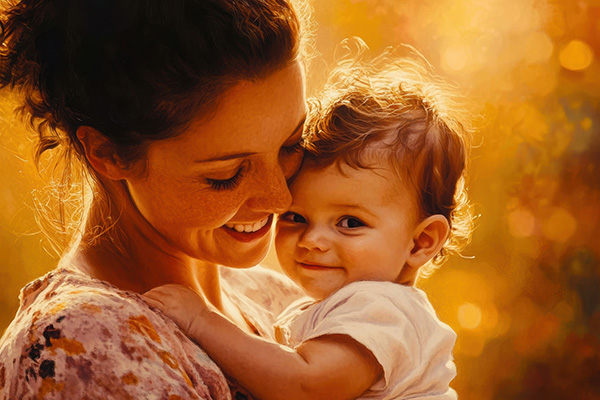 For those of us who grew up with dysfunctional or abusive parents, the journey of healing is not a straight path. It twists and turns through shadows of anger, grief, and longing.
For those of us who grew up with dysfunctional or abusive parents, the journey of healing is not a straight path. It twists and turns through shadows of anger, grief, and longing.
But, within this curse always lies a paradoxical hidden blessing or two. Even the most wounded parents can be our teachers and a source of inspiration, not because of what they gave us, but because of what they could not.
Yes, dysfunctional and abusive parents can be an inspiration. Not in the sentimental sense of gratitude for their suffering, but in the clear-eyed recognition that their brokenness became the rich soil in which your awareness grew.
A damaged parent can inspire you to live more consciously, to love with intention, and to stop the cycle of ancestral pain that shaped them and you.
They can inspire you to use their example as a guide for what not to do, what not to say, and who not to become.
Their absence of nurturing can ignite within you the sacred resolve to be present and compassionate. Their harshness can awaken your gentleness. Their coldness can teach you warmth. The rejection you endured can remind you daily to make every person you love feel safe, seen, and cherished!
Even if your parents were never healed, you can be. Even if they never awakened, you can awaken. Their story does not have to become your destiny. You can use their limitations as fuel to create something better, purer, and truer.
The Man Who Pushed Me Off A Cliff
 Since I was a child, I have had fragmented memories of my past lives. These flashbacks are all parts of those lives and lessons that pertain to my soul growth and karma in this lifetime.
Since I was a child, I have had fragmented memories of my past lives. These flashbacks are all parts of those lives and lessons that pertain to my soul growth and karma in this lifetime.
So far, all of my past life memories have had to do with someone I have interacted with here, in my current incarnation. In other words, I have met all of the people in my past life memories in this lifetime also.
One such memory of a past life, is of a man I was married to in Ireland. We were quite young. I would say no more than 20. We were poor and lived in a little cottage, near a cliff overlooking the ocean. It was a modest, but breathtakingly beautiful home and land. I also remember that I had long, curly red hair.
Sadly, my husband in that lifetime was physically and emotionally abusive. He was always worried that men would desire me and take me away from him.
But I had never been with any man but him. I didn’t want to be with my husband, but I certainly didn’t want another man to control and own me either.
He kept me prisoner in our home and refused to let me leave. My solace was the church. My soul’s water and food was the sunlight, and the sounds and smell of the ocean. My fantasies consisted of building a boat and heading out into the vastness, toward the sunset, letting the ocean’s waves carry me away to wherever she wished me to be. Interestingly, in my present life, nature has always been my sanctuary.
Reclaiming The Voice Of Your Inner Child
 I always sing with my yoga students at the end of class. I used to work in the entertainment industry as a singer, dancer, and actress. Because of that, I feel confident singing in front of people.
I always sing with my yoga students at the end of class. I used to work in the entertainment industry as a singer, dancer, and actress. Because of that, I feel confident singing in front of people.
Growing up, I was always full of joy despite my dysfunctional and rather glum family. Of course, they didn’t appreciate my natural exuberance. They certainly didn’t like that I sang all the time because it represented a lightness of being they had long since given up on.
Like many dysfunctional families, they put me down all the time. They told me that I couldn’t sing and that I sounded awful. But, as with all the other negative, hurtful things they tried to convince me of, I did not believe them.
I kept singing anyway, which irked them. I continued to sing and dance, and I even wrote, produced, directed, and starred in my own musical when I was eleven.
Now I’m not saying I had a good voice as a kid. I really don’t know if I did. But, loving to sing, some voice lessons and lots of joy certainly helped me become a relatively good singer.
One day, after my yoga class, a student came up to me and told me I had a beautiful voice. I thanked her. I often have people compliment my singing voice after class.
The student then told me her family told her she had a bad singing voice when she was a child so she stopped singing. She then mentioned other abuses she received by her cruel family.
